Britain returning to the Great Game? The chapter is not English
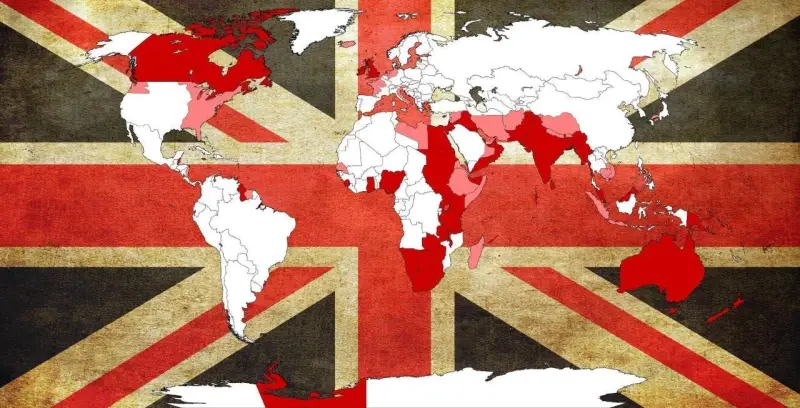
“Kazakhstan break” as a reason for conversation
The other day I watched Andrei Lugovoy’s documentary “Kazakhstan Break”. Its essence, in a nutshell: the Englishwoman is shitting. However, it would be interesting to get acquainted with an unbiased and professional analysis of the information presented in the film. Undoubtedly, worthy of attention, but requiring verification.
On my own behalf, I will comment on the maxim of the girl blogger who participated in the filming: if the events of January 2022 had led to the collapse of power in Kazakhstan, then Western PMCs would now be guarding, like oil rigs in Iraq and Syria, and radicals would control everything around (the film says: religious ) groups.
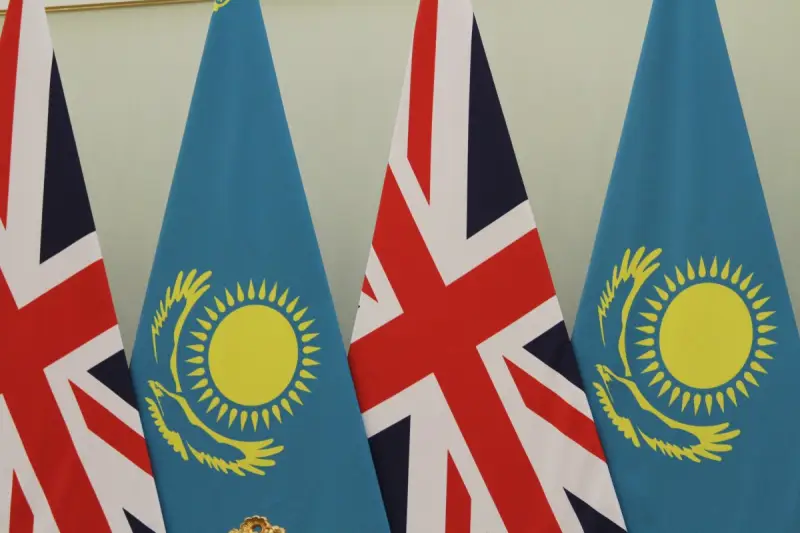
British in Kazakhstan: do ambitions match opportunities?
What groups are we talking about? About sleeper cells? It is unlikely that, having emerged from underground, they will be able to take control of a vast territory. ISIL and its subordinate paramilitary structures banned in the Russian Federation? At that time, they were stationed in the mentioned countries and were drawn into hostilities.
In addition, the film, with a claim to analytics, should have indicated the approximate number of extremist groups, the level of training of their fighters and commanders, the nature of combat experience and previous operations, comparison with the capabilities of the Armed Forces of Kazakhstan, including its special forces.
And which Western PMCs in Iraq and Syria control important facilities in territories occupied by extremists?
Finally, ISIS simply would not have enough strength to conduct operations on two fronts. And besides them, there is no terrorist group capable of overthrowing the existing government in any state and controlling a vast territory, providing effective resistance to the regular army. Maybe the Taliban, but in 2022 they had enough to do in Afghanistan.
Another maxim in the film: “The West doesn’t need a state here, it needs resources.” A number of Western countries, including the United Kingdom, are interested in controlled elites, and not in chaos with extremists.
This does not mean that I see the British as friends. No. But a much more interesting question is about the real possibilities of London outside the metropolis.
This question is all the more relevant against the background of the new foreign policy strategy declared by B. Johnson several years ago, reflected in the program document "Global Britain in a Competitive Age: An Integrated Review of Security, Defence, Development and Foreign Policy".
There are a lot of interesting things in it. Let's stop at the passage:
The northern front of the ITR also affects the southern borders of Kazakhstan. At the same time, the republic, to paraphrase W. Churchill, is located in the soft underbelly of Eurasia, attracting leading powers with its advantageous strategic position and wealth of natural resources, especially oil, gas and uranium.
Accordingly, global actors have different levers of influence on Astana. Russia uses logistical advantages determined by the proximity and length of the border, which, however, also gives rise to a number of problems.
Beijing is betting on investment, leaving the Kremlin the “privilege” of maintaining regime stability, as I recently wrote about (“Russia and China on the eve of the battle for Kazakhstan? Busting the Myth of the Global South").
The United States uses, among other things, its naval presence in the ITR to influence the republic, which was also recently mentioned (“The President's visit to the UAE and KSA: an afterword without euphoria"), drawing attention to the visit to Kazakhstan by the commander of the 5th fleet USA by C. Cooper. It seems that he spoke with the Kazakhs not only about military cooperation in the Caspian Sea.
Accordingly, I see London’s effective policy, at least in the long term, in relation to Kazakhstan as impossible, due to the absence of a land border, without a significant naval leverage in the ITR.
And without at least a brief analysis of Britain’s positions in the Indian Ocean, discussions about its ambitions in Kazakhstan turn out to be taken out of the context of British strategy as a whole.
But in this article I propose to talk about the balance of power in the Indian Ocean, the interests of the leading players in it, and in the next article to consider the possibilities and prospects of the British.
That is, traditionally for my articles, let’s look at the topic, following the recommendation of L.N. Gumilyov, not from the side of a mouse hole, but from the height of an eagle’s flight.
Russian privateers and the queen's fear
So, A. Mahan also wrote: whoever controls the Indian Ocean dominates Asia. During the time of the father of American geopolitics, the British dominated the region, relying on the power of the Navy and allowing the presence in the Asia-Pacific region of the Dutch and Portuguese, who pushed the Spaniards to the United States, and the French, who built democracy at home, and remained cruel colonialists outside the metropolis. Well, the Germans who reached Qingdao were also tolerated.
It was dominance in the Indian Ocean that allowed London to play the Great Game with St. Petersburg for dominance in Central Asia, sometimes overestimating its capabilities.
Thus, according to military historian Sergei Makhov, the British were very wary of Russian privateers in the Pacific Ocean during the Crimean War.
It got ridiculous:
How do you like the appeal of both colonial monsters to the moral feelings of our ancestors? But those are things of bygone days.
Now the situation is different: the Indian Ocean region (RIO) alone includes 38 states. However, there are still few key players: in addition to the Americans represented by the 5th Fleet, there are also India and China.
The political ambitions of the regional superpowers are evidenced by their defense spending, with China and India ranking second and fourth respectively. In terms of the number of armed forces, China is in first place, the United States is second, and India is third.
China in RIO: oil, Gwadar and Djibouti
China, according to some experts, is creating a naval base in Pakistan's Gwadar, which will significantly strengthen its strategic position in the western part of Rio and will allow more reliable communications with Africa (naval base in Djibouti) and the Middle East, from where it imports oil.
The journey from there is not close, passes through the Strait of Malacca controlled by the US Pacific Fleet and takes forty-five days.

PLA Navy Base in Djibouti
In this regard, Gwadar is necessary for logistical reasons, including as a link with the “One Belt – One Road” project, within the framework of which China feels more confident than in RIO and the Asia-Pacific region as a whole:
The closest Chinese naval base to the Indian Ocean is on Hainan Island on the northern coast of the South China Sea. Air bases in southern China are also located at great distances from the Indian Ocean, and the Chinese Air Force has limited aerial refueling capabilities.
These limitations are aggravated by the current lack of guaranteed logistical support for Chinese naval ships in the Indian Ocean, as well as the need to conduct Chinese naval ships into the Indian Ocean through narrow straits in the Malacca Peninsula and the Indonesian archipelago.
The situation for China is complicated by the need to rely only on its own, relatively modest, given its desire to realize naval and RIO-rich ambitions, military-technical resources.
Although in the scientific literature there is a different point of view on this matter:
I don’t think that Russia and China form a bloc, since RIO is not a direct zone of our strategic interests.
The times when the USSR maintained a permanent naval group in the Indian Ocean - the 8th operational squadron - are long gone.
Our current capabilities allow us to solve local problems: ensuring communications of the African Corps formed within the framework of the Ministry of Defense, through a naval base in Sudan (if it is created), since the number of countries where parts of the corps will presumably be deployed is the CAR bordering the mentioned state.
The capabilities of the Pakistani and Iranian navies also do not go beyond solving local problems of ensuring coastal security in the Arabian Sea, the Persian Gulf and the Strait of Hormuz.
Yes, once the last Shah dreamed of creating an ocean-going fleet and even thought about building an aircraft carrier in Britain. Who knows, maybe Tehran will revive such plans, but obviously not in the near future.
Accordingly, China must independently ensure the security of extended communications from the metropolis to the coast of the Horn of Africa, without having a sufficiently strong naval potential for this, if we compare it with the capabilities of the US Navy.
But the opponents of the Celestial Empire - and here I agree with I.V. Mikhel - already represent a bloc opposing its growing naval ambitions.
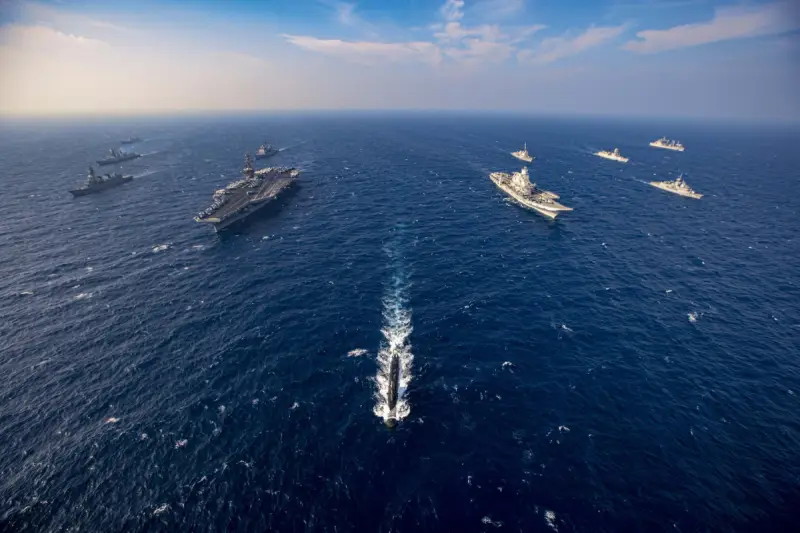
Naval exercise "Malabar"
Since the time of B. Obama, Washington has been adhering to the “Pivot to Asia” strategy. Accordingly, the degree of its impact on states located in the Asia-Pacific region and the build-up of naval presence in the region will only increase.
The United States is actively attracting India to cooperation in the RIO, which is expressed in the traditional Malabar naval exercises.
India on the path of balanced cooperation
According to the data given in one of the scientific articles by orientalist L.N. Garusova:
Above, I mentioned the Indian Armed Forces, which are second only to the PLA in numbers, but its navy ranks sixth (according to other estimates - seventh) in place. New Delhi is trying to bridge the gap with the PLA Navy, including by relying on its own resources as part of the “Make in India” program.
As an example, I will cite the construction by the Indians of the Arihant SSBN, which is a reworked design of the Soviet submarine Skat. But still, without external help, India will find it difficult to catch up with China.
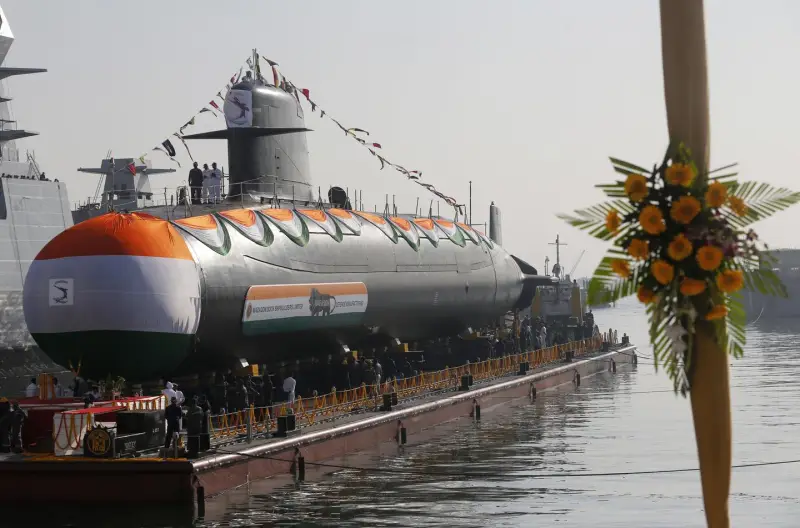
SSRB "Arihant"
And eight years ago, Washington, which named the former its main defense partner, is ready to provide assistance, and in areas previously unusual for it:
Now about India's naval strategy.
Its formation was influenced by analyst S. R. Mohan, who defined the tasks facing the Navy as follows:
In the near future, closer interaction between India and the United States at the level of coordination of naval actions in Rio is obvious.
S. R. Mohan will explain the importance of this process for New Delhi:
New Delhi is expanding the scope of its geopolitical interests by adjusting its naval doctrine, previously limited to the RIO.
This was reflected in the program document “Ensuring maritime security, taking into account changes in the balance of power in the region and the emergence of new challenges and threats”.
Impressive. The only question is the forces intended to implement such ambitious plans.
France extends its hand
In the context of the policy of diversifying the arms market, India is increasing cooperation with France, which is also acquiring the contours of a strategic partnership.
Thus, several years ago, the parties signed an agreement granting Indian warships the right to use French naval bases in Djibouti, Abu Dhabi and Reunion Island.
That is, it is obvious that, within the framework of the proclaimed “Look East” concept, India is simultaneously expanding, albeit on a very modest scale, its naval presence in the west, relying on the French shoulder.
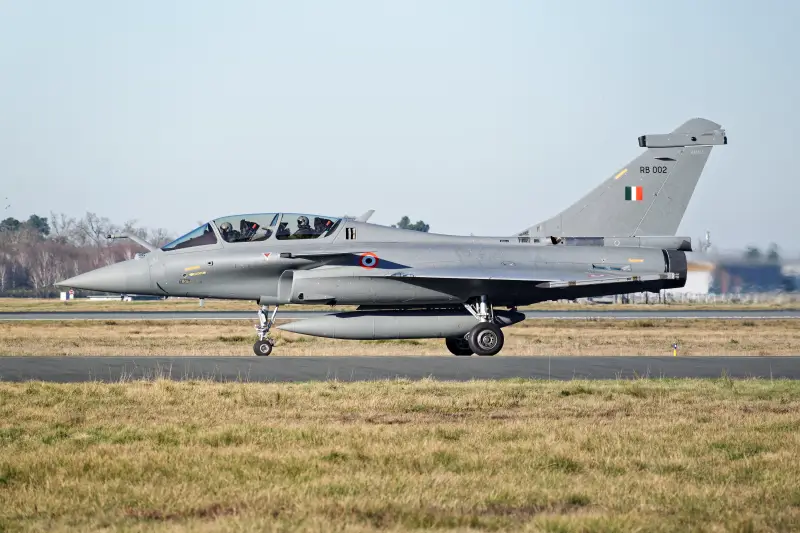
French Rafales guarding Indian skies
Yes, it may not be as strong as the American one, but it allows Indians not to worry about imbalances in relations: France is strong enough for military-technical cooperation, but weak for dominance in the region.
A little aside for a second: it is clear that E. Macron is pursuing a policy in the logic of vassalage regarding the United States, however, it is in RIO that the Fifth Republic can fully declare its independence and even take a step towards, albeit a partial, revival of Gaullism.
Thus, Paris is able to act as a mediator in establishing a dialogue between New Delhi and Beijing, since it is actively developing relations with both. China is France's largest trading partner. India, in turn, is a leading importer of French weapons.
Japan is also in the game
Let's return to the blocks.
Noteworthy is the mention of Japan. Its impressive demographic potential and superiority in the scientific and technical sphere can transform it in the future from a satellite of the United States into a relatively independent actor (such a statement is debatable, so we will accept it as a possible assumption), capable of transforming the Self-Defense Forces in the shortest possible time into a powerful armed forces with a serious military -marine component.

The Japanese Navy is going on a long voyage?
Of course, such a prospect worries Moscow and Beijing, but not New Delhi. At the beginning of the new century, Indian researcher G. Khurana wrote:
The alliance is not an alliance, but cooperation between New Delhi and Tokyo is progressive. It is enough to mention the Indo-Japanese initiative “Asia-Africa Growth Corridor”, which is an alternative to the “One Belt – One Road” project.
The idea is not new: back in 2007, Japanese Prime Minister S. Abe, speaking, as noted by political scientist K. A. Godovanyuk, in the Indian parliament, announced the “merger of the two seas of Greater Asia.”
Contacts of this kind, to which Australia should be added, are determined to a large extent by the desire to weaken the growing influence of China in the Asia-Pacific region and Rio de Janeiro.
However, the rivalry between India and China should not be assessed from an unambiguously negative perspective.
Asian paradox
While affecting the strategic sphere, it does not interfere with them, according to orientalist N. B. Lebedeva:
L.N. Garusova also holds the same idea:

In this case, it is important to take into account China’s lack of claims to world hegemony, which distinguishes it favorably from the United States.
In general, we can talk about the civilizational differences between the Celestial Empire and the Anglo-Saxon world; say, in the context of the reaction of the first to the journey of Zheng He and the second to the expeditions of Drake, Magellan, Columbus and Vasco da Gama.
India's reluctance to aggravate relations with China was expressed in its attitude towards the Quad (USA, Australia, Japan and India) - Beijing views it as an analogue of NATO directed against its country and initiated by the US.
However, New Delhi sees it as nothing more than a humanitarian structure.
Let us summarize: regarding RIO, the United States strives to maintain naval dominance, China strives to ensure vital maritime communications, without claims to hegemony. India sees it as necessary to maintain a balance of interests, including through military-technical cooperation with the United States and France, but while maintaining freedom of hands in the international arena, acting within the framework of a strategy of checks and balances.
It is likely that in the future Japan will expand its naval strategy beyond the eastern part of the Pacific Ocean - it is no coincidence that its participation in the aforementioned Malabar exercises and the construction of a naval base in Djibouti.
And what is the place of Britain, which is once again striving to become great, in the scenario we have considered?
We will talk about this - about the correspondence of its ambitions to its capabilities, including on the northern front affecting Kazakhstan and the ITR - in the next material.
Использованная литература:
Azimbaeva Sh. A. Central Asia in British foreign policy
Azimbaeva Sh. A. “Soft power” in Great Britain in Central Asia
Garusova L. N. Evolution of military cooperation between India and the United States: Indo-Pacific context
Mikhel I. V. strategies of rivalry and partnership in the Indian Ocean region
Godovanyuk K. A. UK priorities in the Indo-Pacific region
Golam T. B., Evnevich V. V., Khudaykulova A. V. Strategic rivalry between India and China in the Indian Ocean basin
Zakharov A. Union of sun and ocean
Zaitsev M. S. On the military strategy of India
Lebedeva N. B. International relations in the Great Indian Ocean through the prism of the concepts of geopolitics and geostrategy
Rau I. Historical aspects of the Chinese Navy's entry into the open ocean
Yun S. M. Comparative analysis of the policies of Germany, Great Britain and France in Central Asia
Information